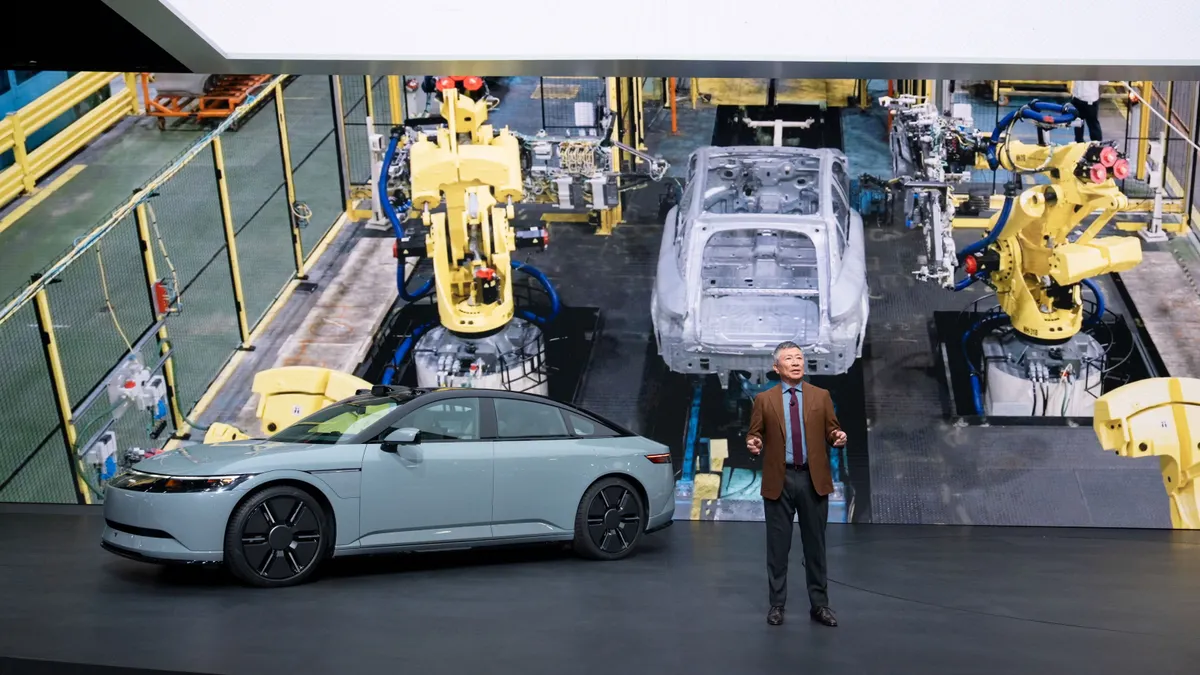Editor's note: This story is part of the WardsAuto digital archive, which may include content that was first published in print, or in different web layouts.
As many as 1.6 million hydrogen-powered vehicles could be on U.K. roads by 2030, a new joint government-industry study predicts.
The forecast is in an interim report by the UKH2Mobility project evaluating the benefits of hydrogen-fuel-cell electric vehicles and ensuring the U.K. is well-positioned for their commercial rollout.
The UKH2Mobility project brings together the automotive, energy, infrastructure and retail sectors with government. The report is intended to serve as a roadmap for the introduction of vehicles and hydrogen-refueling infrastructure in the country.
The study authors say up to 10% of new-car customers will be receptive to fuel-cell vehicles when first introduced, attracted by the newness of the technology and environmental considerations.
“Early-adopter interest will need to be fostered and converted into sales to build confidence in and support for FCEVs, as the first models become available in world markets within the next three years,” the report says.
The initial uptake of FCEVs will progress as more models come to market and the hydrogen-fueling network develops.
The study predicts that once mass FCEV production is established, bringing costs down, there is the potential for 1.6 million vehicles on U.K. roads by 2030, with annual sales of more than 300,000 units.
A coordinated network of refueling stations will need to be established, focusing at first on national trunk routes and heavily populated areas.
“An initial rollout of 65 stations would provide sufficient coverage in line with early vehicle sales, with the network growing in line with the number of FCEVs on the road to provide 1,150 sites by 2030,” the report says.
Based on the forecast uptake figures, the report says FCEVs could reduce U.K. annual total vehicle carbon-dioxide emissions by 3.3 million tons (3 million t) in 2030.
Replacing diesel vehicles with FCEVs could save between £100 million ($157.2 million) and £200 million ($314.4 million) a year in the cost of damage to air quality caused by vehicle emissions by 2050.
FCEVs produce no harmful tailpipe emissions, but some forms of hydrogen production do generate CO2.
“Using a range of manufacturing methods can deliver hydrogen at a cost that is competitive with diesel, with 60% lower CO2 emissions in 2020, improving to 75% less in 2030,” the report says.
Hydrogen production will be on course for zero emissions by 2050, it predicts, at which time FCEVs could have a market share of between 30% and 50%.
It says there will be a lag between creation of a basic network of hydrogen refueling stations and the number of FCEVs on the road to make it financially self-sustaining.
The report puts an initial estimate of this cost at about £400 million ($619 million) to 2030. The next phase of the study will look to reduce this figure and consider different models for delivering it.
The final report of Phase 1 of the study is to be published in March. Phase 2 of UKH2Mobility will use the information and roadmap contained in Phase 1 to develop a detailed business case and specific actions for participants.
Akihito Tanke, vice president-research and development for Toyota Europe, says the auto industry recognizes it is vital to develop and deliver new ways to alleviate the environmental impact of the vehicles it produces.
“Hydrogen-fuel-cell technology represents a major advance in securing sustainable mobility,” Tanke says in a statement.
“As manufacturers reach the point of bringing the first FCEVs to market, it is important that all interested parties work together to ensure their benefits can be appreciated and realized through coordinated dialogue between industry partners and government bodies.”
Graham Cooley, CEO of ITM Power, a hydrogen-energy-storage company, says the report sows a seed for the adoption and development of a new transport system that will allow society to decarbonize road transport and clean up emissions, without disrupting its business and social routine.
“Phase 2 will show how that seed can proliferate, enabling the U.K. to be a world leader in the deployment and manufacturing of the necessary electrolyzer-refueling technology and fuel-cell vehicles,” Cooley says.
U.K. Business Minister Michael Fallon says the transition to ultra-low-emissions vehicles already has begun. “It has the potential to create really significant new economic opportunities for the U.K. and diversify national energy supply,” he says in a statement.
UKH2Mobility’s findings show FCEVs can contribute significantly to those goals.
“Successful commercialization of the technology will require government to work in true partnership with industry,” Fallon says. “Our international rivals are looking to steal a march in this area, and so UKH2Mobility recognizes the importance of prompt action to ensure the potential benefits are realized by businesses and consumers in the U.K.”




















